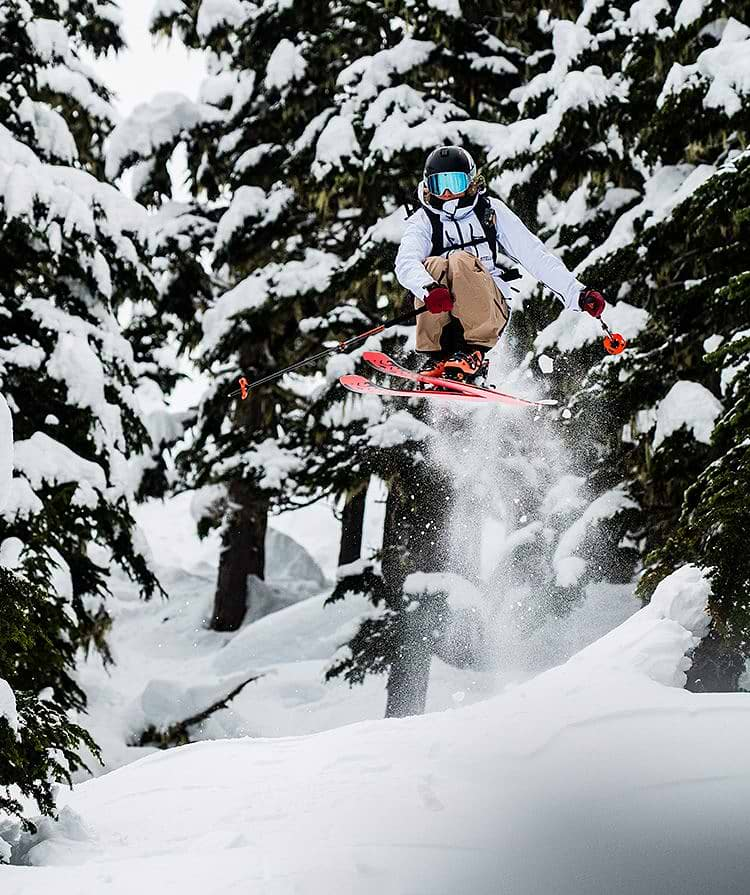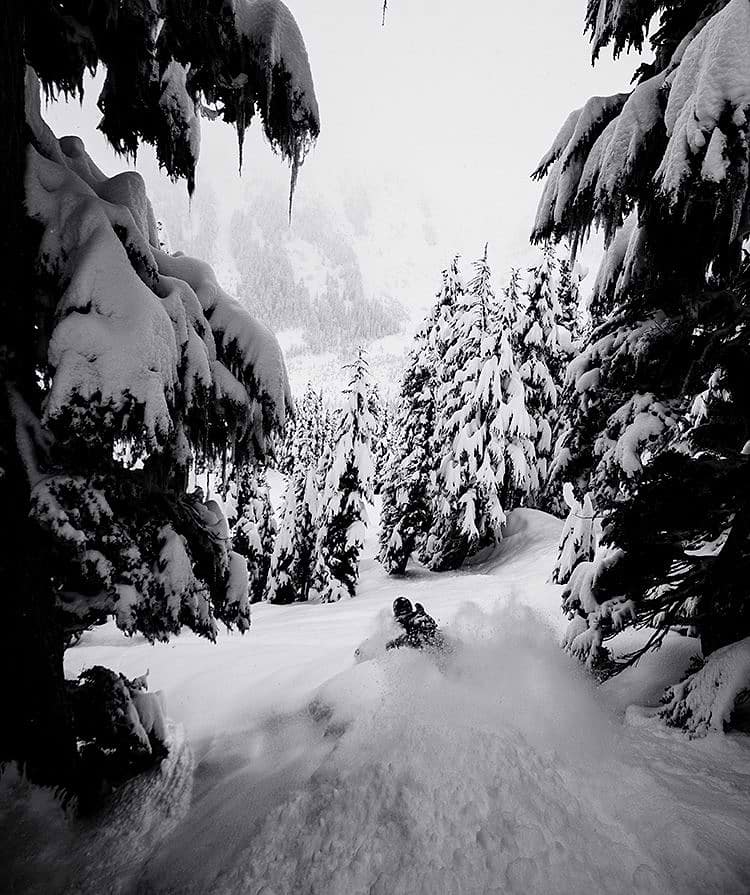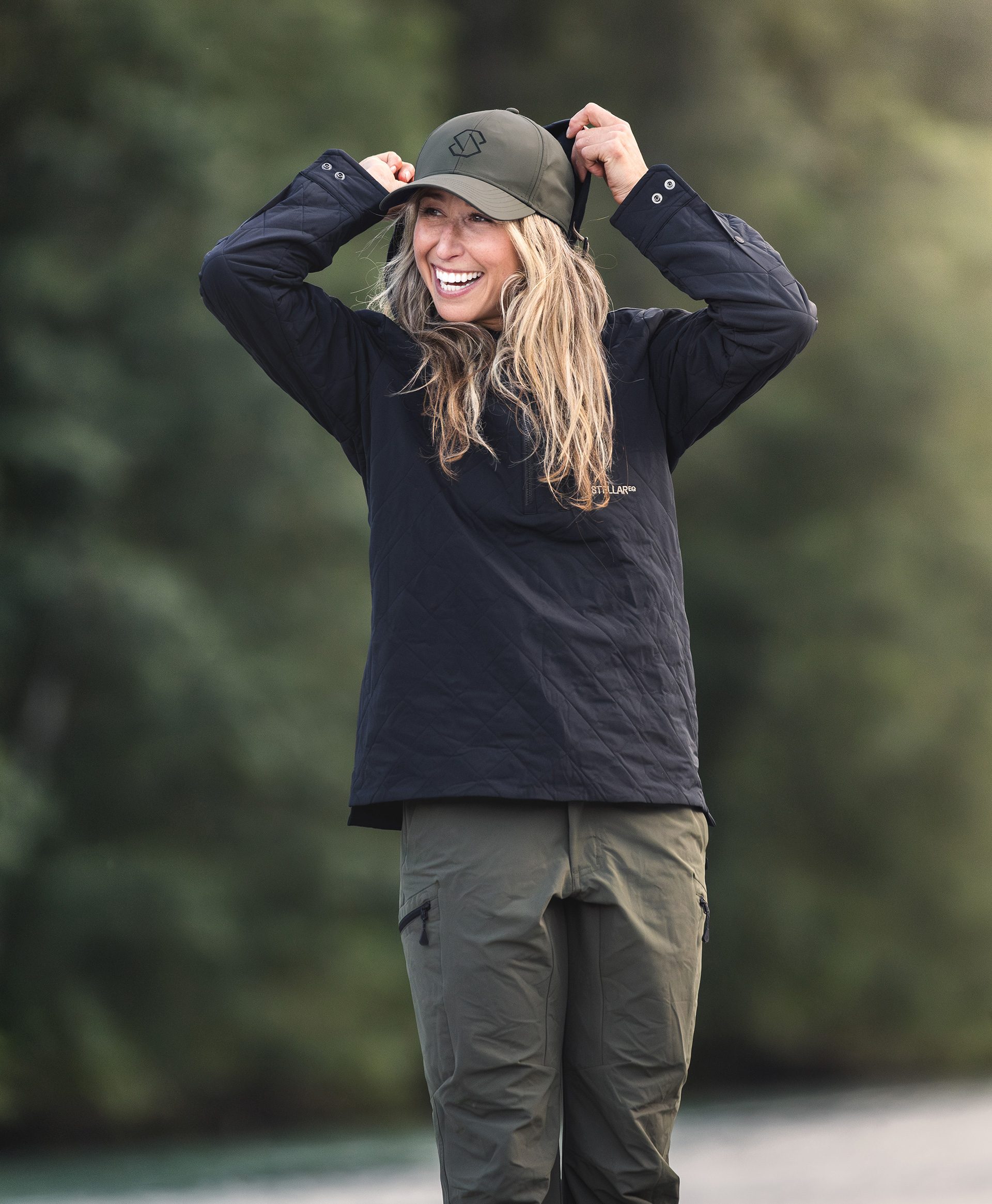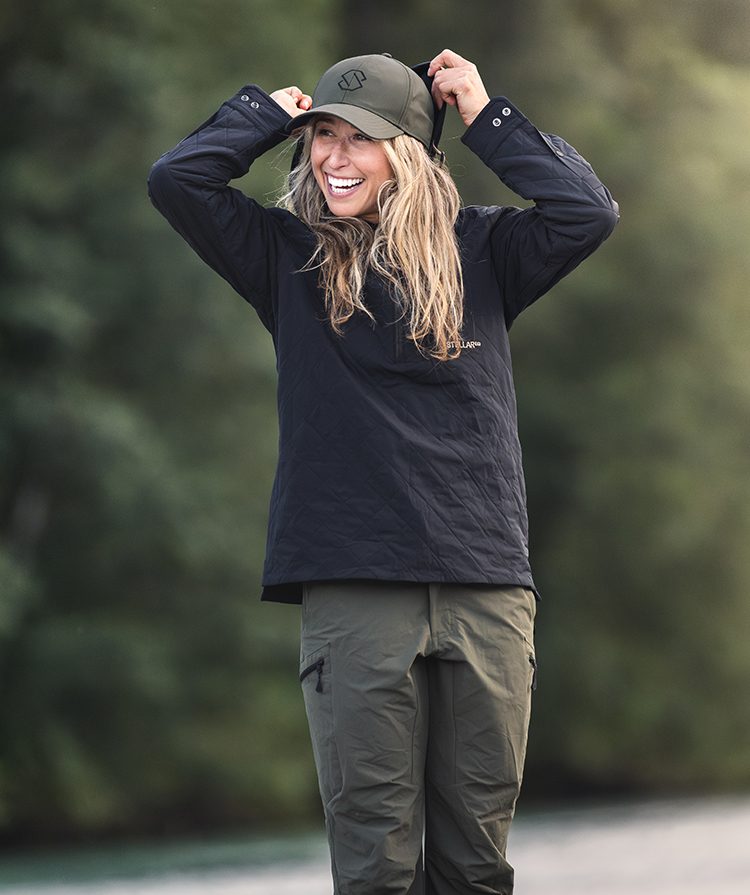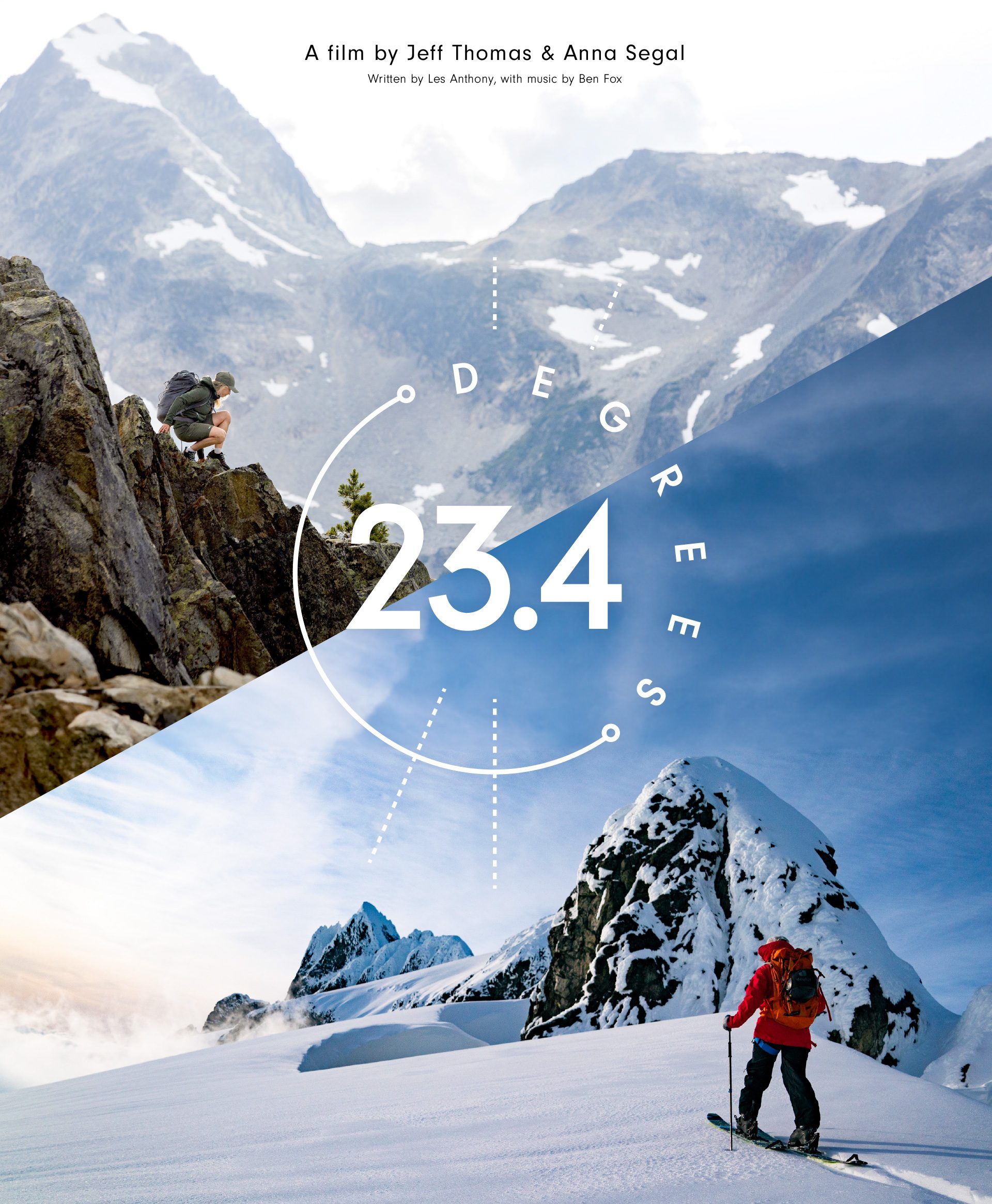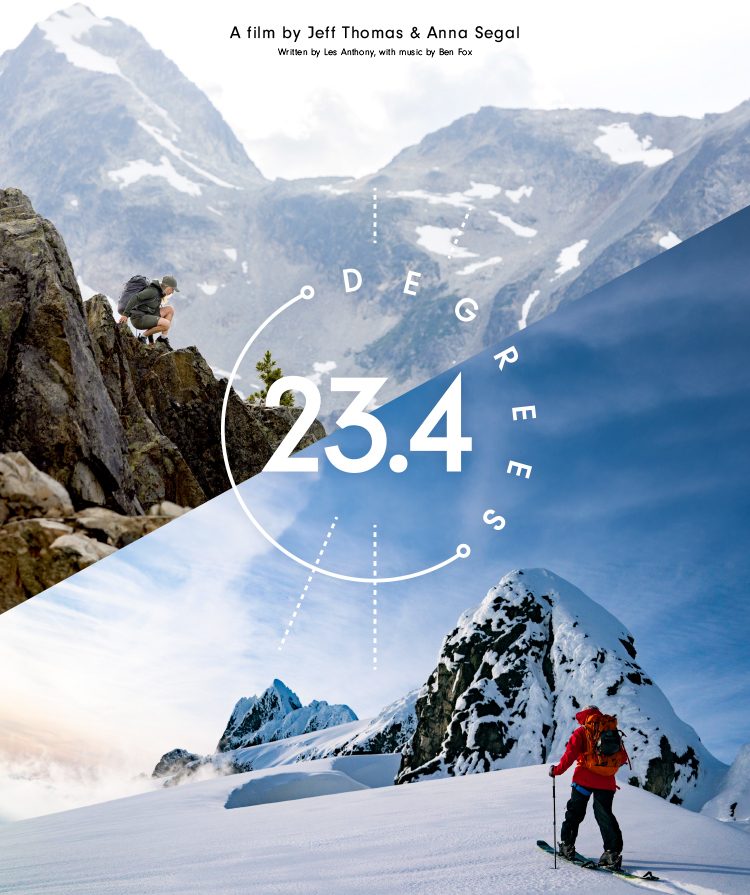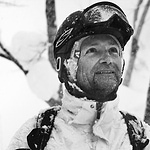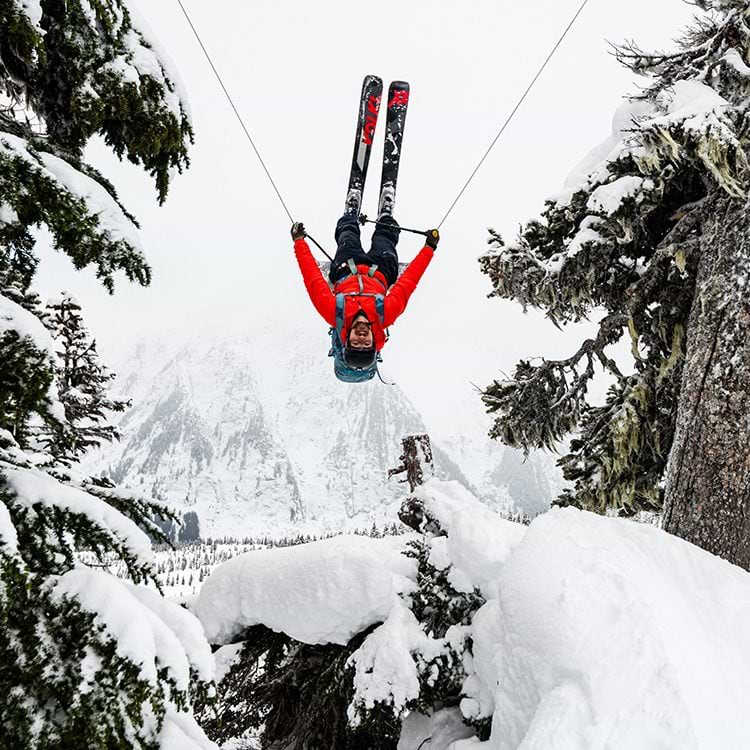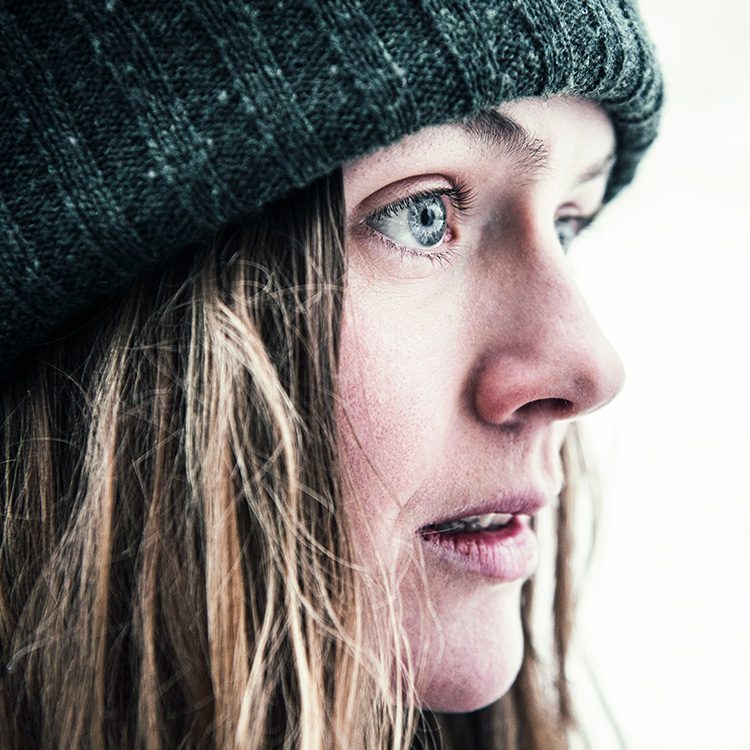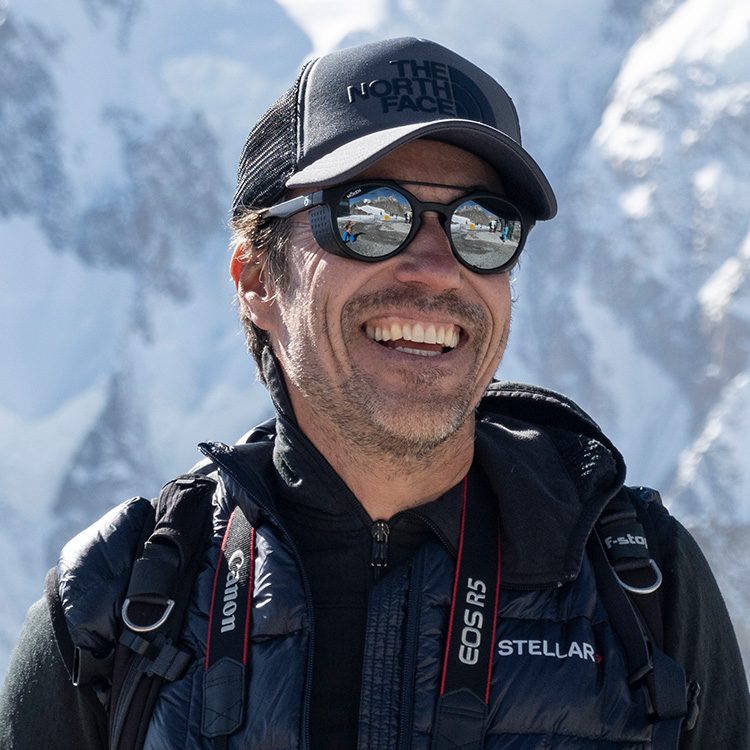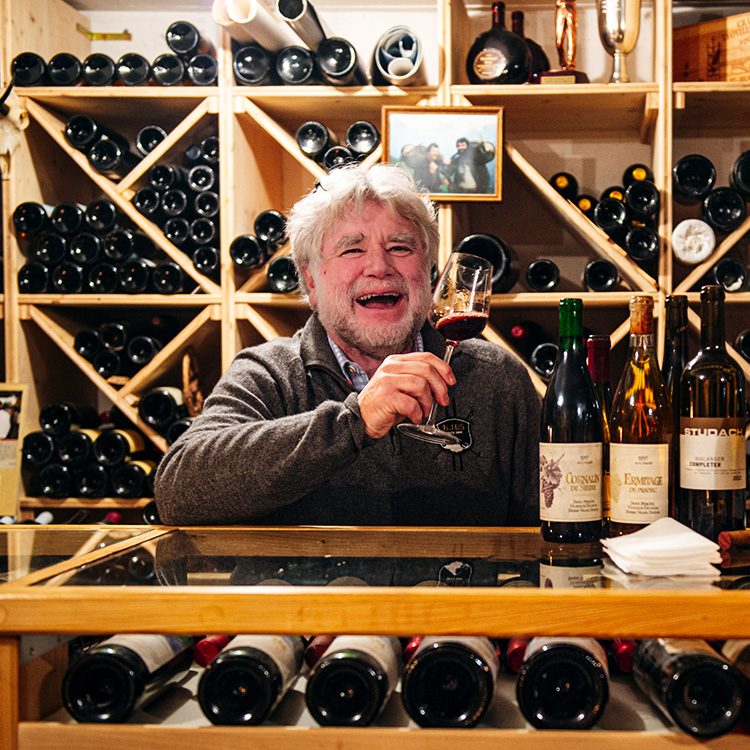No one is harder on Anna Segal than Anna Segal. That much is clear of the skier who cut her teeth on gum-tree-constellated slopes north of Melbourne, Australia, represented her country in Slopestyle at the 2014 Winter Olympics in Sochi, Russia, and threw down bigtime in two recent Blank Collective films—2021’s Tales from Cascadia and Feel Real in 2022. Though given to making fun of her “slow-learning” ways when it comes to sledding, picking lines or building jumps, she’s just as quick to call out her own self-flagellation on social media. “[It all] goes to show there’s no point in getting frustrated while skiing—maybe one day I’ll learn to live by these words.”
Maybe. But some part of getting frustrated, pushing through, and levelling up clearly works for her.
Segal’s story starts on the Europa Cup circuit with the Australian mogul development team, where she’d ski “crappy little Aussie parks” after training. After a major knee injury in moguls, she switched full-time to park, inspired by freestylers Sarah Burke, Kristi Leskinen and Marie Martinod. Landing in Aspen, Segal took up the usual ski-bum jobs, skied every day, and threw herself at the park. By 2006 she felt ready to enter the first premiere women’s Slopestyle event, Queen’s Cup, where she competed against Sarah, Kristi and Marie. But her first significant result would be at the following year’s U.S. Open. “It was a big, scary course, but moguls had given me a good competition mindset. Sarah, Kristi and Marie were there, and though I didn’t have their tricks—plus a cast on my hand, black eye and scrapes on my face—I was solid and won.”
The next eight years on the international Slopestyle circuit are a blur spun with glints of metal: gold, silver and bronze at the Winter X Games; gold at FIS Worlds; 2nd overall in the 2012 AFP World Tour; a 4th in the 2014 Winter Olympics Games. Before the Olympics, nursing the chronic pain of multiple injuries, Segal was already feeling the urge to branch out, be a more-rounded skier, and get in front of the camera.
Anna Segal
Her transition from park to backcountry was neither quick nor easy. “It’s almost harder to bring tricks to the backcountry because there isn’t all the time for training on trampolines, water ramps, and in the park. I could throw 360s and backflips off anything but time spent touring, learning mountain safety and sledding takes away some of that.”
As Segal persisted, she also made another move. “At a World Cup in Copper Mountain, I was riding a lift with [fellow competitor] Yuki Tsubota. She asked what I was going to do after Sochi. I knew the fire had gone from competing, so I answered, ‘Ski pow.’ Yuki told me Whistler was the best place in the world to do that.”
The idea stuck. But she knew little of its mountains or community, having only attended Whistler’s World Ski & Snowboard Festival to compete and then celebrate with some partying. “I didn’t have any close friends there, so it was a scary move. I was in Whistler five years before I bought a place in [nearby] Pemberton; it was more affordable, friends were moving there, and that’s where my partner lived, so it made sense.”
She spent her first year in Whistler skiing a lot of park, then started filming with Jeff Thomas. Though mostly fluffy ad campaigns, it was a stepping stone to working with Blank Collective. “The first season with Blank, I went out a few days, then in 2021, it was ‘let’s get you on as a main skier.’ Of course, I wanted to be charging but had to take a step back and learn a few skills. It was a struggle but a good experience.”
It also paid dividends. At the 2022 IF3 festival, she was nominated for Standout Female Skier of the Year for her work in Feel Real.
Segal, now 37 years old, is no stranger to taking things into her own hands. Along with younger sister Natalie, 3rd overall on the 2013 Freeride World Tour, Segal co-produced the 2018 film Finding the Line. “No one was knocking on our doors,” she says of the era when both were transitioning from their respective pro careers, “so we thought we’d do a sister project with a storyline. After six months of arguments and tears, we looked a bit deeper, and it went from a one-season shoot to a three-year film that explored how each of us deals with fear in the mountains. In the end, it was like completing a Masters’s degree because it took every ounce of our knowledge and intelligence to finish.”
While the odd Pacific Northwest winter 2021-22 was another study in patience—waiting out the weather, repeatedly putting projects on hold, making the best of it—there were still great days on Whistler Blackcomb, a ski-touring trip to Whitecap Alpine, and filming with her sister again. “I’d forgotten how much fun we have together in the mountains,” she says.
Ironically, a photo shoot on Lofoten Islands, Norway, with Stellar Equipment in the spring —put the most significant stamp on Segal’s winter. “It was a great way to end the season,” she says. “I loved Norway, how you could just drive the coast, point at something, then ski it—adventures right off the road. Surfing, too. And an amazing landscape. You couldn’t take a bad photo.”
At home, Segal has leaned into the opportunities of her backyard with ski, surf, and climbing trips around British Columbia. The winter of 2022-2023 saw the launch of a new film project focusing on how we’re physically, psychologically, emotionally, and professionally connected to a landscape by shifting seasons.
23.4 Degrees is a 12-minute short outdoor film directed by Jeff Thomas and produced by Segal. It follows her across valleys, forests, boulder fields, and summits of British Columbia as she explores her affinity with seasonal change and its role in connecting our modern lifestyle to the natural world. 23.4 Degrees, a reference to the Earth’s axial tilt as it orbits the sun, had its World Premiere at the iF3 Festival in Whistler in the fall of 2023 and became a finalist at the Banff Mountain Film Festival shortly after.
Watch the film here 23.4 Degrees →







